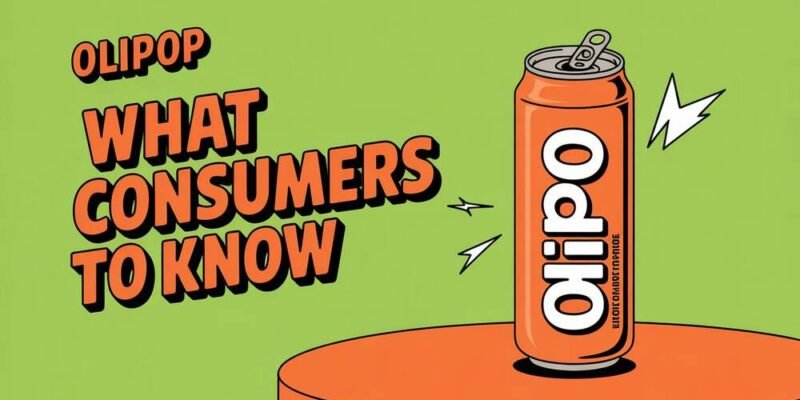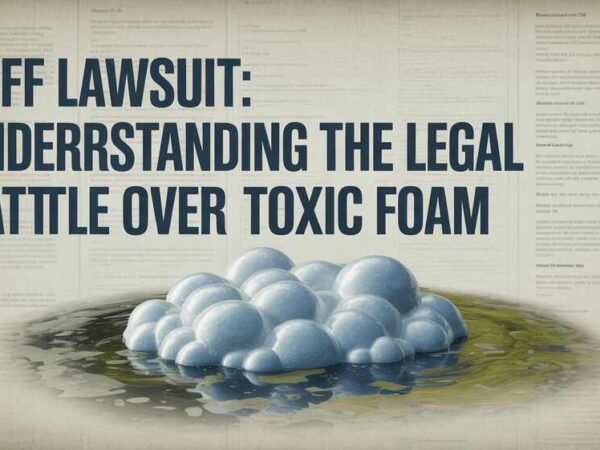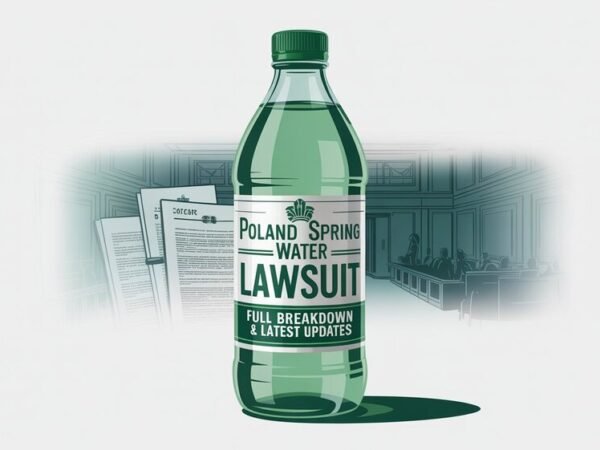Introduction to the Olipop Brand
Olipop has carved a unique space in the booming health beverage market by offering a flavorful, gut-friendly soda. Marketed as a prebiotic soda, Olipop appeals to health-conscious consumers who crave the bubbly satisfaction of traditional soft drinks without the sugar overload. Packed with plant fiber, botanicals, and low sugar content, Olipop is a favorite in natural grocery stores, social media wellness circles, and among fitness enthusiasts. With a sleek can design and quirky flavors like “Strawberry Vanilla” and “Classic Grape,” it’s no surprise the brand gained traction quickly.
In recent years, consumers have become more aware of what’s inside their food and drinks, and Olipop positioned itself at the intersection of health and indulgence. However, that wholesome image came under intense scrutiny in 2024 when the company became the subject of multiple legal notices. These allegations raised serious questions about product safety and transparency, propelling the brand into a heated controversy.
What Sparked the Olipop Lawsuit?
The Olipop lawsuit originated from a series of legal notices filed by the Environmental Research Center (ERC), a nonprofit watchdog known for pursuing consumer safety violations in California. These notices alleged that several Olipop soda flavors contained dangerous levels of heavy metals, specifically lead and mercury, which could pose a health risk if consumed regularly. The legal actions are not formal lawsuits yet but were filed under California’s Proposition 65, which mandates businesses to warn consumers about significant exposures to chemicals that cause cancer, congenital disabilities, or other reproductive harm.
The first notice came in January 2024, followed by additional yearly filings. Each new complaint added more flavors to the list of allegedly contaminated products. ERC argued that Olipop failed to provide adequate warnings to consumers about the potential risks posed by these metals, violating California’s stringent labeling requirements.
Products Named in the Legal Complaint
This situation garnered public attention because of the wide range of Olipop products named in the legal notices. Flavors that had become household favorites—like Vintage Cola, Doctor Goodwin, and Cream Soda—were all included in the complaints. Notices filed throughout 2024 revealed an alarming trend: the alleged contamination wasn’t limited to just one or two batches but spanned multiple popular flavors and release periods.
Here is a breakdown of the timeline:
- January 12, 2024: ERC files notice for Classic Grape and Root Beer.
- January 19, 2024: Additional notice covers Tropical Punch, Doctor Goodwin, Lemon Lime, Orange Squeeze, and Cream Soda.
- May 24, 2024: Vintage Cola listed for lead and mercury content.
- July 26, 2024: Strawberry Vanilla, Barbie Peaches & Cream, Ginger Ale, and Cherry Cola flagged.
- August 14, 2024: Crisp Apple, Banana Cream, and Watermelon Lime join the growing list.
The breadth and consistency of these notices led to increased pressure on Olipop to address the matter publicly and reassure its growing customer base.
Toxic Metals Allegedly Found in Olipop
The central concern behind the Olipop lawsuit revolves around two heavy metals: lead and mercury. According to the ERC filings, these contaminants were found in amounts that exceeded the legal safety thresholds established by California’s Proposition 65.
Lead is a well-documented neurotoxin that can severely impact brain development, particularly in children and pregnant women. Mercury, another toxic metal, is associated with damage to the nervous, digestive, and immune systems and is especially harmful to unborn babies when consumed by expecting mothers. The health risks are serious even at low levels if consumed regularly over time.
While trace amounts of heavy metals can sometimes be naturally occurring—especially in plant-based ingredients—regulatory agencies maintain strict guidelines to protect consumers. The lawsuit alleges that Olipop failed to provide clear warnings about these risks, which is a violation under Prop 65.
Health Risks Tied to Contaminated Beverages
Exposure to lead and mercury through food and beverages can have cumulative effects over time. For example, consistent exposure to lead, even in small amounts, can cause behavioral problems, reduced IQ in children, kidney damage, and reproductive issues. Mercury exposure is equally dangerous and has been linked to neurological impairment, vision loss, and developmental problems in fetuses and infants.
The concern with beverages like Olipop is that they are marketed as daily wellness products—often promoted as part of a healthy lifestyle. Consumers drink them frequently, unaware they might be ingesting harmful substances. Such exposure could carry significant risks for health-conscious individuals and those with compromised immune systems, mainly if they rely on the brand as a better-for-you alternative.
Olipop’s Official Response and Legal Strategy
As news of the lawsuit spread, Olipop responded publicly to address growing concerns. The company issued statements claiming that all of its products undergo rigorous testing for safety and meet federal standards for quality and contamination. Olipop also noted that the metals found in its products are within naturally occurring limits and that the ingredients are sourced responsibly.
Despite these reassurances, Olipop has yet to release third-party lab reports or detailed findings to the public. The lack of transparency has made some consumers question the brand’s commitment to safety and accountability. While the company reportedly cooperates with regulatory authorities, it remains unclear how Olipop plans to address the Proposition 65 violations or whether label changes and reformulations are underway.
Comparison with Other Beverage Lawsuits
The Olipop lawsuit follows another high-profile case involving Poppi, another prebiotic soda brand. Poppi was hit with a class-action lawsuit alleging misleading health claims in that case. While Poppi’s controversy centers on exaggerated marketing, Olipop’s case involves alleged physical contaminants—arguably a more serious public health concern.
Both lawsuits, however, underscore the growing scrutiny facing the functional beverage industry. Companies are held to higher transparency and safety standards as more consumers seek wellness drinks. These cases could determine how prebiotic and functional beverages are labeled, regulated, and marketed.
Consumer Reaction and Market Impact
The consumer response to the Olipop lawsuit has been mixed. While some loyal customers continue supporting the brand, others have expressed disappointment and concern. Social media platforms like Reddit and Instagram have seen an uptick in posts questioning the brand’s integrity and calling for independent testing of its products.
Retailers have not publicly pulled Olipop from shelves, but some health advocates are urging stores to reconsider their inventory until the matter is resolved. The long-term damage to Olipop’s brand image could be substantial, especially if the company fails to prove that its drinks are safe.
Regulatory Oversight and Future Compliance
The Olipop case has spotlighted the need for stricter prebiotic and functional beverage market regulation. Currently, the FDA does not require pre-approval for beverages claiming health benefits as long as they do not include unsafe ingredients. However, Proposition 65 adds another layer of accountability for companies doing business in California.
Moving forward, industry experts believe companies like Olipop must implement more robust quality control, increase transparency in sourcing and lab testing, and be proactive in issuing consumer warnings when necessary. Regulatory agencies may also start mandating independent third-party testing for niche health beverages consumed frequently.
Final Thoughts: What’s Next for Olipop and the Industry?
The Olipop lawsuit has triggered a wave of concern and introspection across the functional beverage industry. While the entire legal outcome remains, the incident influences how brands approach ingredient sourcing, product testing, and consumer communication. For Olipop, regaining consumer trust will likely depend on its willingness to be transparent, make reforms, and prioritize safety over marketing.
For consumers, this case serves as a reminder to stay informed and critical—even when products come with a wellness halo. As the demand for health-centric alternatives continues to grow, so will the importance of regulation and accountability. Whether Olipop can weather this storm and come out stronger remains to be seen, but the lawsuit has undoubtedly reshaped the conversation around what it means to be a truly “healthy” beverage brand.













